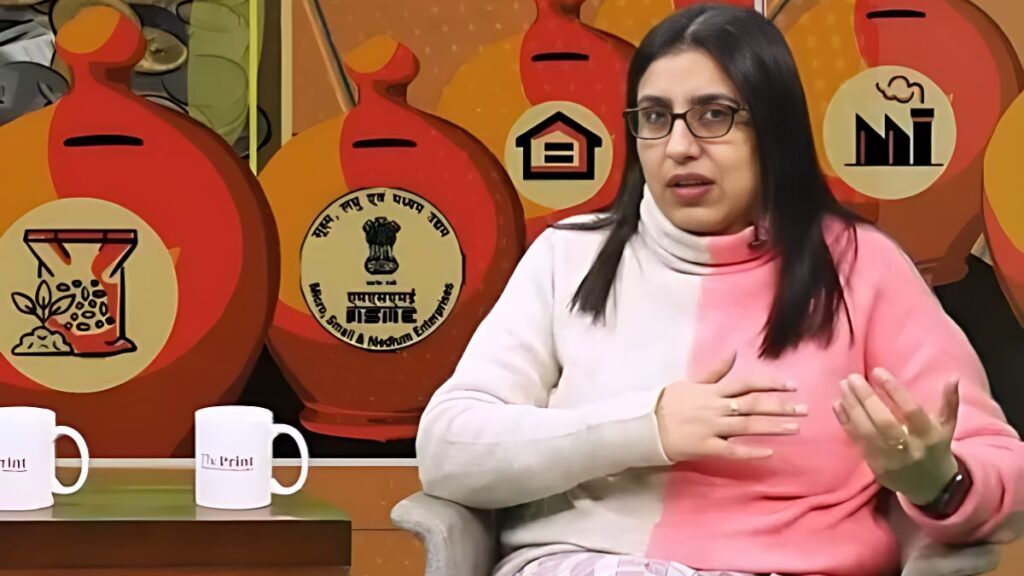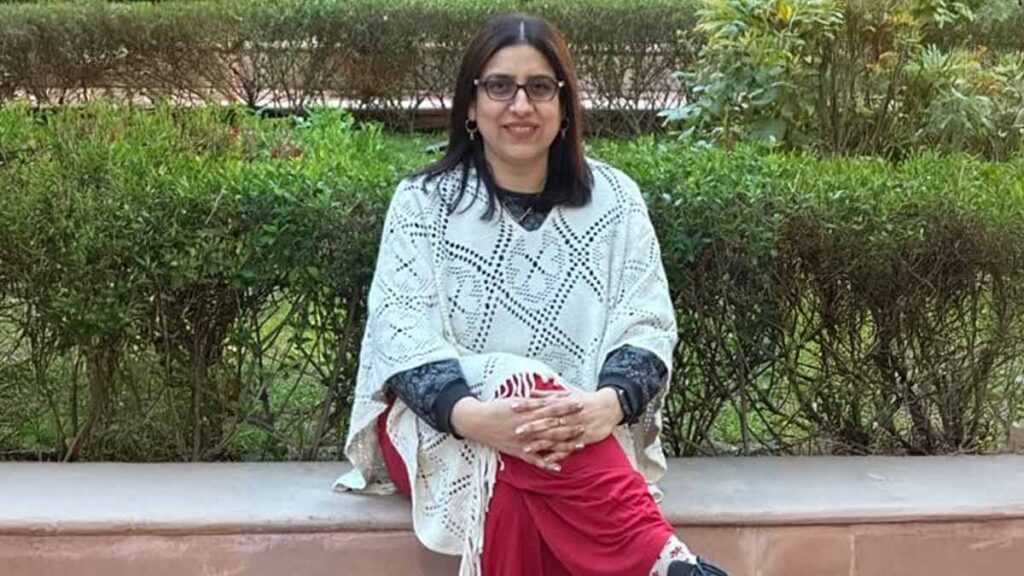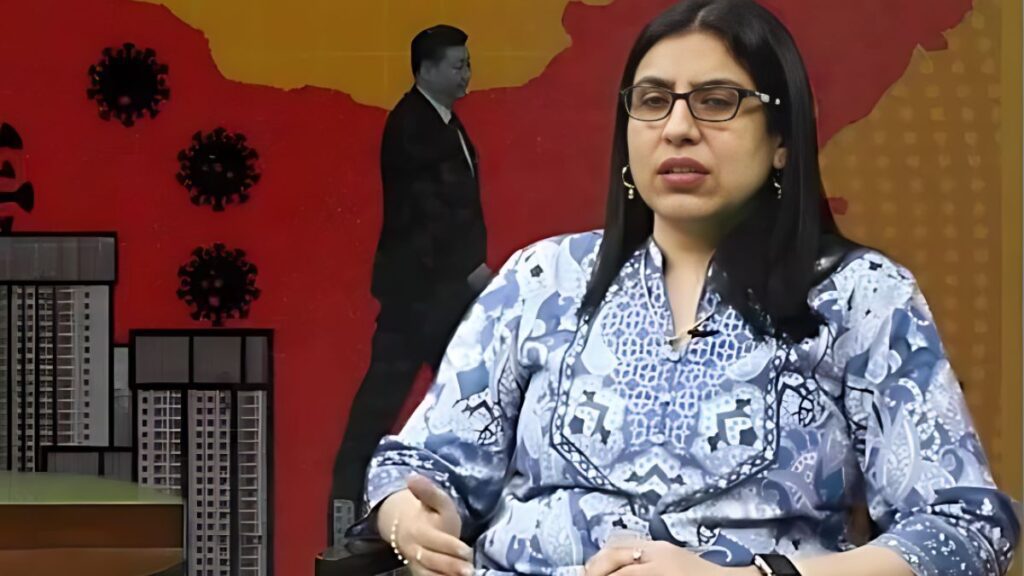
The world of economics and public policy mourns the loss of Radhika Pandey, a distinguished economist and associate professor at the National Institute of Public Finance and Policy (NIPFP) in New Delhi, who passed away at the age of 46 due to complications following an emergency liver transplant. Her untimely death has left a void in the academic and policy-making communities, where she was celebrated for her profound contributions to macroeconomics, financial sector regulation, and public policy.
This article explores Radhika Pandey’s remarkable career, her lasting legacy, the circumstances surrounding her passing, and the broader implications of liver health and transplant challenges. By delving into her achievements and the critical health issues she faced, we aim to honor her memory while raising awareness about liver health and the complexities of organ transplantation.
Radhika Pandey’s Illustrious Career in Economics

Radhika Pandey was a towering figure in the field of economics, known for her sharp intellect, rigorous research, and ability to translate complex economic concepts into accessible insights for policymakers and the public alike. As an associate professor at NIPFP, one of India’s premier institutions for public finance and policy research, she dedicated over two decades to advancing economic thought and shaping policy reforms. Her work focused on critical areas such as macroeconomic stability, financial sector regulation, and fiscal policy, earning her widespread respect among peers, students, and government officials.
Pandey’s contributions extended beyond academia. She served on several influential government committees, providing expert guidance on financial sector reforms and economic policy frameworks. Her research papers, published in prestigious journals, addressed pressing issues such as banking sector stability, monetary policy effectiveness, and public expenditure efficiency. These works not only influenced policy decisions but also set benchmarks for academic rigor in Indian economics.
In addition to her scholarly achievements, Pandey was a gifted communicator. As a senior columnist for leading publications, she had a unique ability to demystify intricate economic problems, making them understandable to a broad audience. Her columns often explored topics like inflation, economic growth, and financial inclusion, offering practical insights that resonated with readers from all walks of life. This talent for clear communication made her a trusted voice in public discourse and a mentor to countless aspiring economists.
A Passionate Educator and Mentor
Beyond her research and policy work, Radhika Pandey was deeply committed to education. As a professor, she inspired generations of students with her passion for economics and her ability to connect theoretical concepts to real-world challenges. Her teaching style was engaging and inclusive, fostering critical thinking and encouraging students to question conventional wisdom. Colleagues at NIPFP often described her as a mentor who went above and beyond, offering guidance and support to young researchers navigating the complexities of academic and professional life.
Pandey’s mentorship extended to her role as a public speaker. She frequently participated in seminars, conferences, and television discussions, where her eloquence and analytical clarity captivated audiences. Her ability to bridge the gap between academia and public understanding earned her admiration across diverse circles, from policymakers to everyday citizens seeking to understand India’s economic landscape.
The Tragic Circumstances of Her Passing

Radhika Pandey’s life was cut short at the Institute of Liver and Biliary Sciences (ILBS) in New Delhi, where she underwent an emergency liver transplant. While the specific details of her underlying liver condition have been kept private out of respect for her family’s wishes, it is known that complications arose during or after the procedure, ultimately leading to her passing. The loss of such a vibrant and influential figure has prompted reflection on the fragility of life and the complexities of organ transplantation.
Liver transplants are among the most challenging surgical procedures, often performed as a last resort for patients with end-stage liver disease or acute liver failure. The procedure involves replacing a diseased liver with a healthy one from a donor, but it carries significant risks, particularly when performed under emergency conditions. According to medical experts, emergency liver transplants are often necessitated by rapidly deteriorating liver function, leaving little time for preoperative preparation or optimization of the patient’s condition.
Understanding Liver Transplants and Their Risks
Liver transplantation is a life-saving procedure for individuals with severe liver conditions, such as cirrhosis, hepatitis, liver cancer, or acute liver failure caused by factors like drug toxicity or viral infections. However, the procedure is fraught with potential complications, which can occur at various stages:
Immediate (Perioperative) Complications
During or immediately after surgery, patients may face risks such as excessive bleeding, blood clots, or cardiovascular and respiratory issues. These complications are particularly concerning in emergency cases, where the patient’s overall health may already be compromised.
Early Postoperative Complications
In the days and weeks following a transplant, patients are vulnerable to infections, rejection of the donor liver, bile duct complications, and acute kidney injury. Infections and graft rejection are among the most common causes of post-transplant mortality, as highlighted in a study published in the journal Liver Transplantation. The study notes that timely intervention and specialized care are critical to improving outcomes.
Long-Term Complications
For those who survive the initial recovery period, long-term challenges include chronic rejection, recurrence of the original liver disease, and side effects from immunosuppressive medications. These drugs, necessary to prevent the body from rejecting the new liver, can increase the risk of infections and other health issues over time.
Despite advances in surgical techniques and postoperative care, liver transplants remain high-risk procedures. The success rate has improved significantly over the years, with one-year survival rates now exceeding 85% in many centers, according to the Liver Transplantation journal. However, emergency transplants, like the one Radhika Pandey underwent, often carry lower success rates due to the patient’s critical condition and the urgency of the procedure.
The Importance of Liver Health Awareness
Radhika Pandey’s passing serves as a poignant reminder of the importance of liver health and the challenges associated with liver disease. The liver is a vital organ responsible for detoxifying the body, metabolizing nutrients, and producing essential proteins. However, liver diseases often progress silently, with symptoms like fatigue, jaundice, or abdominal pain appearing only in advanced stages. Common causes of liver failure include chronic hepatitis, excessive alcohol consumption, non-alcoholic fatty liver disease (NAFLD), and autoimmune disorders.
Raising awareness about liver health is crucial for early detection and prevention. Regular medical check-ups, a balanced diet, moderate alcohol consumption, and avoiding exposure to hepatitis viruses can significantly reduce the risk of liver disease. For individuals diagnosed with liver conditions, early intervention through lifestyle changes, medication, or, in severe cases, transplantation can be life-saving.
Public health campaigns and educational initiatives play a vital role in promoting liver health. Organizations like the World Health Organization (WHO) and the Indian Liver Foundation emphasize the need for widespread screening programs and access to affordable healthcare to address the growing burden of liver disease. In India, where liver diseases are a significant public health concern, such efforts are particularly critical.
Radhika Pandey’s Enduring Legacy

Radhika Pandey’s contributions to economics and public policy will continue to shape India’s financial and academic landscapes for years to come. Her work on financial sector reforms, particularly in the areas of banking regulation and monetary policy, provided actionable insights that strengthened India’s economic framework. Her research on fiscal policy and public expenditure offered valuable guidance for policymakers seeking to balance growth and stability.
Beyond her professional achievements, Pandey’s legacy lies in her ability to inspire others. Her students and colleagues remember her as a compassionate mentor who encouraged intellectual curiosity and championed evidence-based policymaking. Her columns and public engagements made economics accessible to a wider audience, fostering a deeper understanding of the forces shaping India’s economy.
In the wake of her passing, tributes have poured in from across the globe. Fellow economists have praised her analytical rigor, while students have shared stories of her warmth and dedication. Policymakers have acknowledged her role in shaping reforms that have had a lasting impact on India’s financial system. These tributes underscore the profound influence Pandey had on those around her and the enduring value of her work.
Lessons from Radhika Pandey’s Life and Loss
The loss of Radhika Pandey highlights the fragility of life and the importance of cherishing every moment. Her dedication to her work, her passion for teaching, and her commitment to public service serve as an inspiration to all who knew her. At the same time, her passing underscores the need for greater awareness about liver health and the complexities of organ transplantation.
For individuals and families affected by liver disease, Pandey’s story is a call to action. It emphasizes the importance of seeking timely medical care, staying informed about health risks, and supporting organ donation initiatives. In India, where the demand for donor organs far exceeds the supply, increasing organ donation rates could save countless lives.
Healthcare professionals also have a critical role to play in improving outcomes for liver transplant patients. Advances in surgical techniques, better immunosuppressive therapies, and enhanced postoperative care can reduce the risks associated with transplantation. Research into less invasive treatments for liver disease and improved organ preservation methods could further enhance survival rates.
Honoring Radhika Pandey’s Memory
As we reflect on Radhika Pandey’s life and contributions, there are several ways to honor her memory. Supporting institutions like NIPFP, which continue to advance economic research and policy, is one way to carry forward her legacy. Encouraging young economists to pursue rigorous, impactful research and to communicate their findings effectively can also perpetuate her influence.
On a broader level, advocating for liver health awareness and organ donation can help prevent similar tragedies. By supporting initiatives that promote early detection of liver disease and improve access to quality healthcare, we can work toward a future where fewer lives are lost to preventable conditions.
Conclusion
Radhika Pandey’s untimely passing at the age of 46 is a profound loss for the academic, economic, and policy-making communities. Her contributions to macroeconomics, financial sector regulation, and public policy have left an indelible mark on India’s intellectual and economic landscape. As we mourn her loss, we also celebrate her remarkable life—a life dedicated to knowledge, mentorship, and public service.
Her passing also serves as a sobering reminder of the challenges associated with liver disease and transplantation. By raising awareness about liver health, supporting organ donation, and advancing medical research, we can honor Pandey’s memory and work toward a healthier, more informed society. Radhika Pandey’s legacy will continue to inspire economists, students, and policymakers for generations to come, reminding us of the power of intellect, compassion, and dedication to make a lasting impact.
Note: All information and images used in this content are sourced from Google. They are used here for informational and illustrative purposes only.
FAQs on Radhika Pandey, Economics, and Liver Health

1. Who was Radhika Pandey and why was she important in economics?
Radhika Pandey was a renowned economist and associate professor at NIPFP, New Delhi. She made significant contributions to macroeconomics, financial sector regulation, and public policy, shaping reforms and mentoring future economists.
2. What were Radhika Pandey’s major contributions to public policy?
She influenced banking regulation, monetary policy, fiscal management, and public expenditure efficiency. Her research provided practical insights for policymakers and informed reforms in India’s financial system.
3. How did Radhika Pandey impact students and young economists?
As a passionate educator and mentor, Pandey inspired students with her teaching, encouraged critical thinking, and guided young researchers to pursue evidence-based policymaking and rigorous research.
4. What were the circumstances of Radhika Pandey’s passing?
Radhika Pandey passed away at 46 following complications from an emergency liver transplant at the Institute of Liver and Biliary Sciences (ILBS) in New Delhi. Her untimely death highlighted the risks associated with urgent liver surgeries.
5. What are the risks involved in liver transplants?
Liver transplants, especially emergency ones, carry risks such as bleeding, infections, organ rejection, and post-operative complications. Success rates are higher for planned procedures but remain challenging in critical cases.
6. Why is liver health important?
The liver is vital for detoxification, metabolism, and protein production. Diseases often progress silently, making early detection, lifestyle management, and preventive care critical to avoiding severe complications.
7. What can be learned from Radhika Pandey’s life?
Her dedication to economics, mentorship, and public service underscores the value of passion, intellect, and leadership. Her life also raises awareness about the importance of organ donation and liver health.
8. How can we honor Radhika Pandey’s legacy?
Supporting economic research institutions, mentoring young economists, promoting liver health awareness, and encouraging organ donation initiatives are meaningful ways to honor her memory.
9. What is the broader message regarding liver transplants and organ donation?
Her passing highlights the need for early intervention, access to quality healthcare, improved transplantation methods, and increased awareness of organ donation to save lives.
10. How is Radhika Pandey remembered in the academic and policy-making community?
She is remembered as a brilliant economist, a compassionate mentor, a public communicator of economic ideas, and a thought leader whose work continues to inspire policymakers, students, and economists worldwide.







Leave a Reply